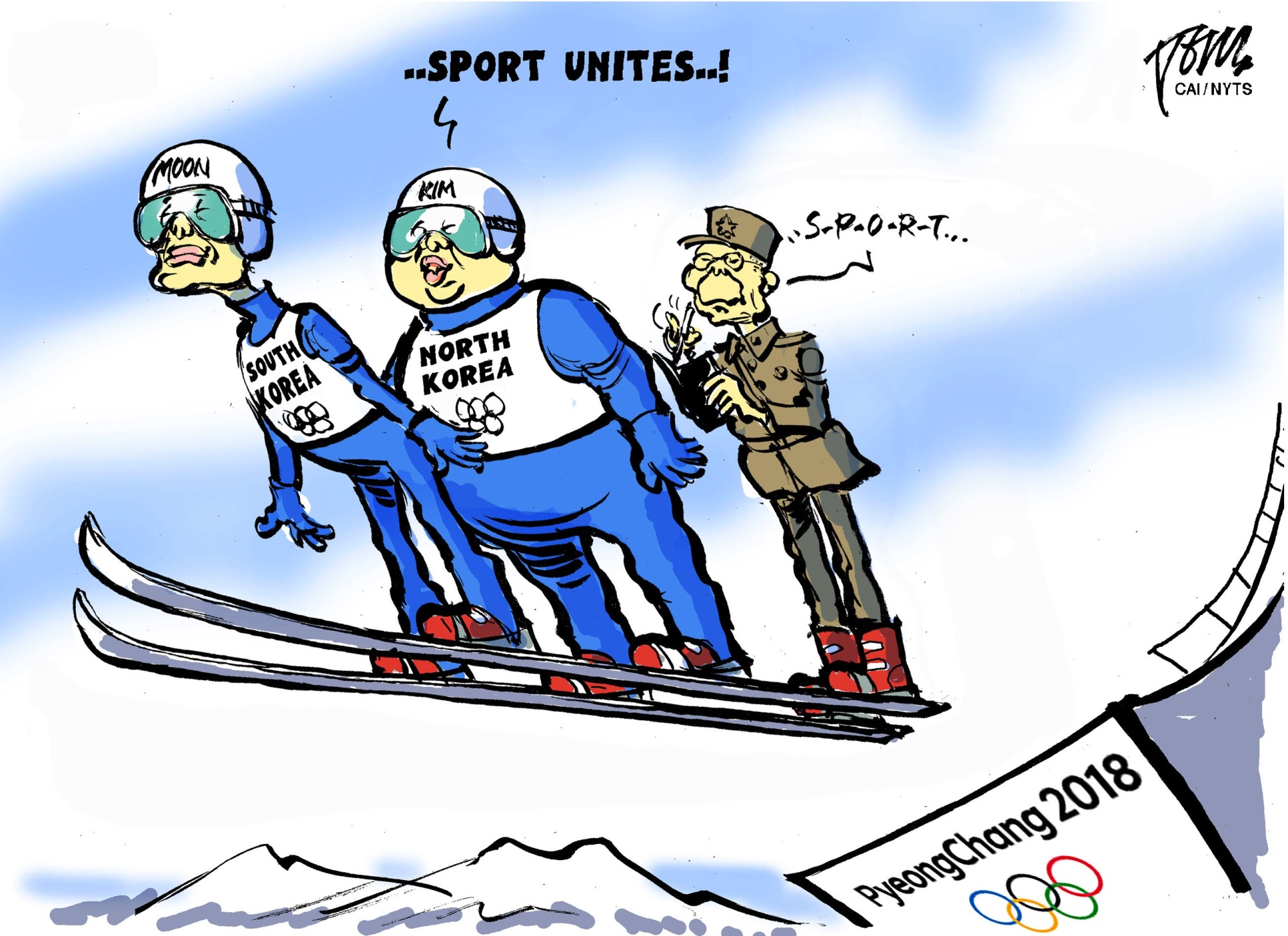After some two years of rising tensions on the Korean Peninsula, the reprieve, however brief, that the Winter Olympics in the South Korean city of Pyeongchang promises to bring is more than welcome. But, with some military experts estimating that the probability of war now surpasses 50 percent, complacency is not an option.
After years of accelerated missile development, which culminated in successful tests of intercontinental ballistic missiles and, allegedly, a hydrogen bomb last year, North Korea's nuclear program has become an imminent threat not only to its neighbors, but also to the United States. The response of U.S. President Donald Trump's administration — which has included unprecedented saber-rattling on Twitter — has escalated tensions further.
Yet, on Jan. 1, North Korean leader Kim Jong Un called for better relations with the South, before agreeing to participate in the Olympics. What accounts for Kim's sudden extension of an olive branch to South Korea?



